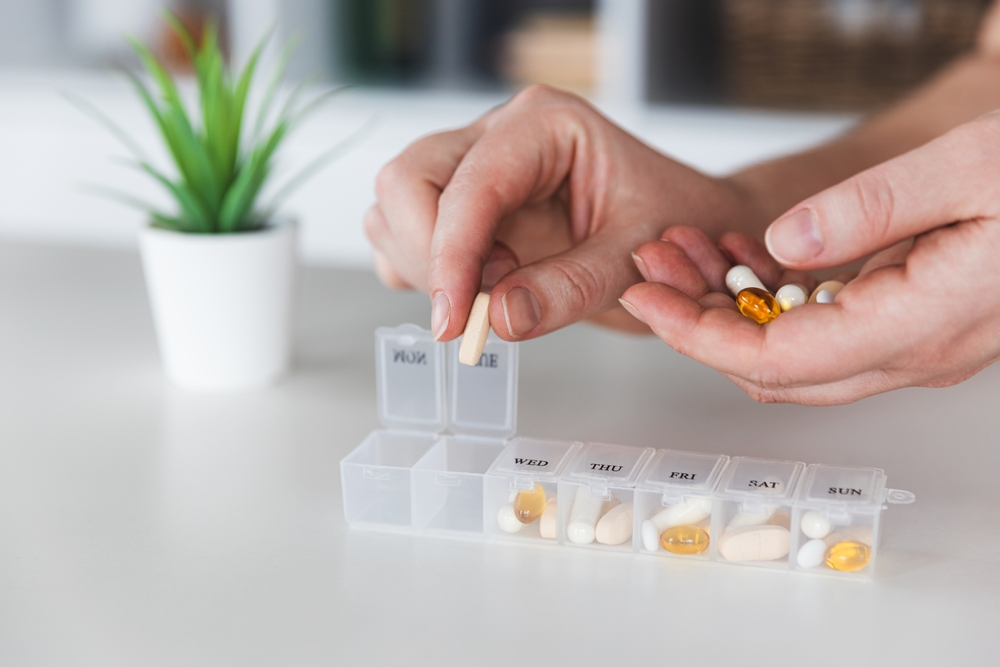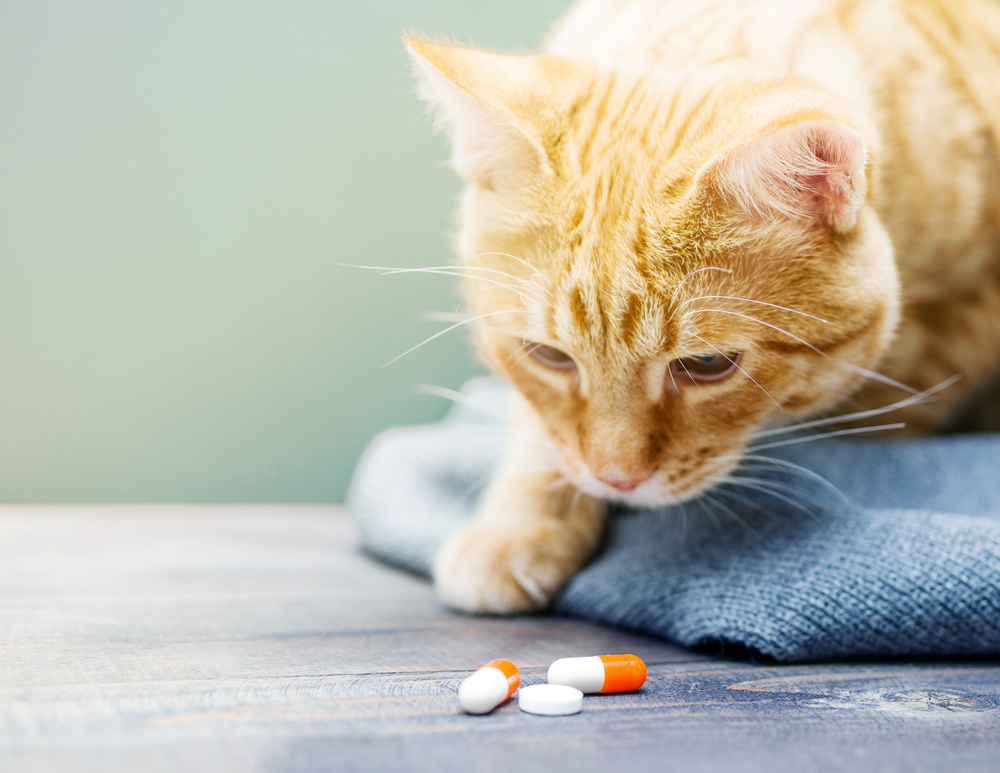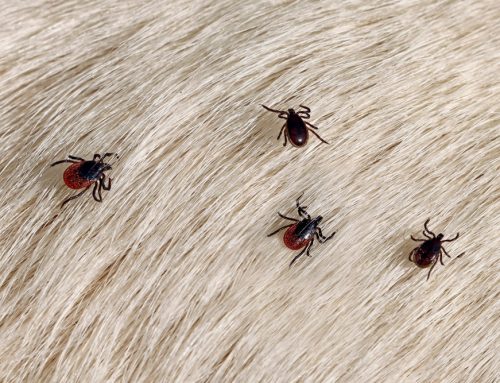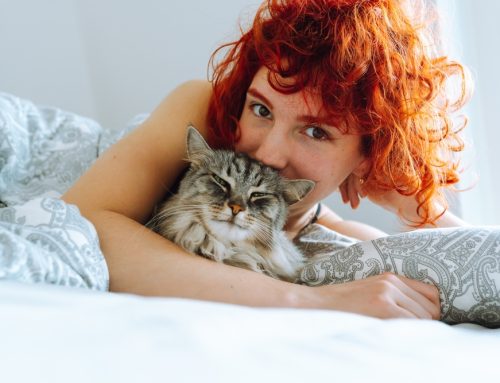Curious pets explore with their mouths, which can put them at risk of ingesting things they shouldn’t. Human medications, often kept in unsecured cabinets and on countertops, can be mistaken for tasty treats, posing a threat to your pet’s health.
Our Best Friends Veterinary Care team wants to empower you with the knowledge you need to safeguard your pet. Learn about common medications that are dangerous for pets and how to prevent your furry pal from becoming accidentally poisoned.
Why are human medications risky for pets?
Pets metabolize medications differently from people. A safe dose for you could be a toxic, even fatal, cocktail for them. Their smaller bodies, unique metabolisms, and different organ functions make them incredibly susceptible to adverse reactions, even if they only ingest a tiny amount of a medication intended for people. Think of it like giving a child an adult’s medicine dosage. The consequences can be disastrous.
Medications that are toxic to pets
Several types of human medications pose significant dangers to pets. Consider these medications that are likely lurking in your home:
- Pain relievers — Common pain relievers, such as ibuprofen (Advil, Motrin) and naproxen (Aleve), can cause stomach ulcers, kidney failure, and even death in pets. Even a single pill can trigger internal bleeding and organ damage. Acetaminophen (Tylenol) is highly toxic to cats and can also harm dogs by damaging their liver and red blood cells, leading to weakness, vomiting, and even coma.
- Mood and sleep medications — These medications, including alprazolam (Xanax), diazepam (Valium), zolpidem tartrate (Ambien), and fluoxetine (Prozac), can cause a rollercoaster of effects in pets, ranging from drowsiness and confusion to seizures, tremors, and even coma. Imagine your pet stumbling around, disoriented and unable to control their movements—a scary and potentially life-threatening situation.
- Attention deficit hyperactivity disorder (ADHD) medications — Stimulants, such as mixed amphetamine salts (Adderall) and methylphenidate (Ritalin), pack a powerful punch, causing hyperthermia (dangerous overheating), seizures, heart problems, and even death in pets. Their small bodies can’t handle the intense stimulation, leading to a cascade of harmful effects.
- Heart and blood pressure medications — These medications can disrupt your pet’s delicate heart rhythm and blood pressure, leading to serious complications such as arrhythmias, fainting, and even organ failure.
- Other risky medications — Birth control pills, thyroid hormones, and cholesterol-lowering medications can also be harmful to pets, causing various issues depending on the specific medication. Always err on the side of caution and keep all medications out of your pet’s reach.
When to seek help for pet poisoning
If you suspect your pet has ingested human medication, don’t wait for symptoms to appear! Every minute counts. Act quickly and watch for these signs:
- Vomiting and diarrhea, indicating irritation and potential damage to their digestive system.
- Lethargy and loss of appetite, suggesting the medication is affecting their energy level and overall well-being.
- Abdominal pain, indicating internal distress sign caused by the medication.
- Seizures and tremors, indicating nervous system disruptions caused by the medication.
- Difficulty breathing, a serious symptom that requires immediate veterinary attention.
Time is of the essence. If you suspect medication ingestion, contact Best Friends Veterinary Care team or call the Pet Poison Helpline at 1-888-426-4435. They will provide expert advice and guide you on the next steps, potentially saving your pet’s life.
Keeping your pet safe from medication toxicity

Prevention is always the best medicine. To prevent your pet from inadvertently ingesting a medication you or your family members take, follow these tips:
- Store all medications in secure cabinets or on high shelves that are inaccessible to your pet.
- Never share human medications with your pet, even if they appear in pain or unwell. Consulting our team is always the safest option.
- Don’t just toss unused medications in the trash. Dispose of drugs safely by taking them to a pharmacy for proper disposal. This prevents accidental ingestion by pets or scavengers.
- When traveling or visiting others, be mindful of medication storage and keep your medications put away.
We’re committed to providing your pet with the highest quality care and preventive advice. If you have questions or concerns about medication safety or other potential hazards in your home, schedule an appointment with our Best Friends Veterinary Care team.








Leave A Comment